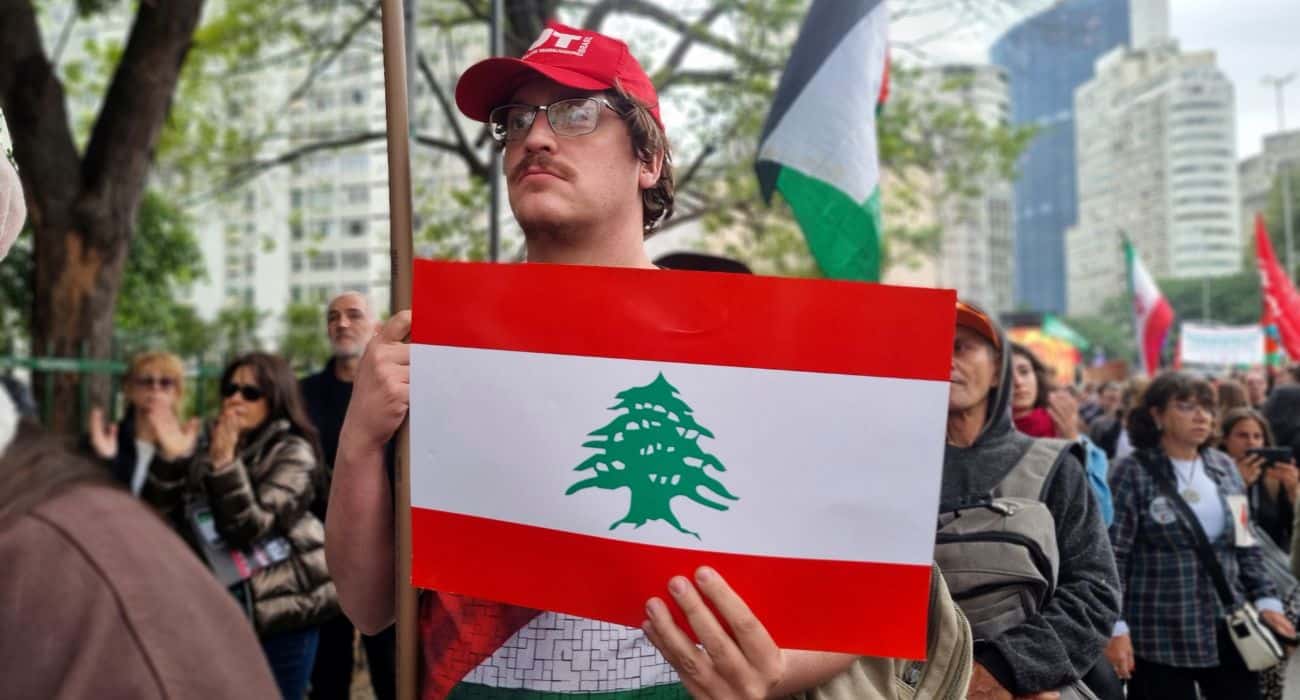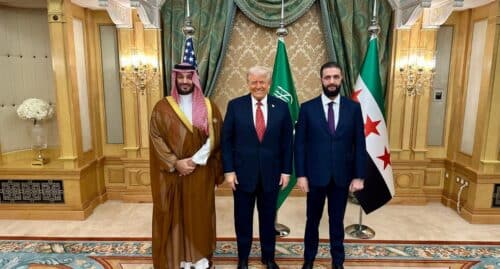
Over the past year, Hezbollah has faced a growing existential crisis, intensified by the targeted assassinations of senior figures including Fuad Shukr, Ibrahim Aqil, Jawad Tawil, and particularly Secretary-General Hassan Nasrallah and his successor, Hashem Safi al-Din. Once Iran’s most formidable proxy and a significant strategic actor in the Middle East, Hezbollah now contends with depleted leadership, military setbacks, and mounting international pressure. Does this signal genuine weakening within the Shiite terrorist organization?
According to Lebanese sources, Hezbollah is undertaking drastic measures to ensure its survival, notably relocating the families of hundreds of senior commanders to Latin America.
Lebanese journalist Ali Hamadeh recently disclosed in a video published on his X (formerly Twitter) account that the families of approximately 400 Hezbollah leaders have left Lebanon, finding refuge primarily in South American countries like Venezuela, Colombia, Brazil, and Ecuador. Hamadeh explains this relocation is driven by the growing recognition that Hezbollah’s military capabilities are deteriorating, and the continued presence of these commanders’ families in Lebanon significantly increases their vulnerability to Israeli or international intelligence operations.
Hamadeh suggests this mass relocation indicates Hezbollah is preparing for an era of diminished direct military engagement in Lebanon, shifting instead towards increased political influence, economic operations, and organized criminal activities abroad.
Hezbollah in Latin America
Hezbollah has long maintained a prominent presence in Latin America. Since the early 1980s, the organization has cultivated extensive networks across the continent, driven by Iran’s aspiration to export its Islamic Revolution. Leveraging sizable Shiite Lebanese communities and the presence of weak or anti-Western governance, Hezbollah has effectively entrenched itself in various Latin American regions.
A significant hub of Hezbollah activity is the Tri-Border Area connecting Argentina, Brazil, and Paraguay, where the group operates elaborate networks involved in drug trafficking and money laundering. Under Hugo Chávez and Nicolás Maduro, Venezuela provided Hezbollah with favorable conditions to expand its influence, capitalizing on the substantial Lebanese community there.
Hezbollah’s activities are also notable in Brazil and Colombia. In 2023, Brazil thwarted a Hezbollah plot targeting its Jewish community. Additionally, Hezbollah was implicated in the devastating 1994 bombing of the AMIA Jewish community center in Buenos Aires, prompting Argentina to officially designate the organization as a terrorist entity in 2019.
Strategic Implications of Relocation
If reports of Hezbollah leaders’ families relocating to South America are accurate, this strategic shift could significantly enhance Hezbollah’s continental influence. Establishing new local command structures and embedding deeper into criminal networks would enable the organization to preserve its global threat status, even as its direct military power in the Middle East diminishes.
For Iran, strengthening Hezbollah’s position in Latin America represents a strategic alternative following the collapse of the land corridor linking Tehran to Beirut through Iraq and Syria, a critical route disrupted by al-Julani’s takeover in Syria, which dismantled a primary achievement of former Quds Force commander Qasem Soleimani.
This strategic pivot could enable Iran to rebuild Hezbollah, transforming it from a direct Middle Eastern military threat into a covert global actor, with Latin America as its new operational center.
These developments align with Iran’s ongoing efforts to reconstruct the fractured “Axis of Resistance” following Assad’s regime collapse, Nasrallah’s assassination, and the weakening of Hezbollah and Hamas due to targeted leadership eliminations. Iran seeks creative methods to rehabilitate its damaged proxy networks, including establishing new proxies like the “Islamic Resistance in Syria,” leveraging international criminal organizations, and promoting inter-proxy cooperation.
Threats to the United States
Hezbollah’s potential strengthening in Latin America poses serious security threats to both Israel and the United States. With the return of the Trump administration to the White House, renewed American attention to Latin America seems likely.
From a U.S. perspective, Hezbollah operatives migrating to South America pose security risks as well as structural immigration challenges. Countries like Venezuela, Colombia, and Ecuador, with porous borders and weak or corrupt governance, provide ideal conditions for smuggling, document forgery, and evasion of immigration controls.
There is a real possibility that Hezbollah operatives could infiltrate the U.S. via its southern border, using forged passports or alternative identities. Consequently, Hezbollah is viewed not only as a regional threat but as a systemic danger undermining U.S. border control, economic stability, and societal cohesion.
President Trump previously adopted a firm stance against Hezbollah, isolating the group economically and initiating global investigations into its financial networks. Given the potential infiltration of Hezbollah operatives into Latin America under civilian guises, the Trump administration might implement several strategic actions:
- Initiate cooperation with Latin American countries to extradite Hezbollah operatives through diplomatic pressure, economic sanctions, and international legal frameworks.
- Expand surveillance and disruption efforts led by U.S. Treasury, CIA, and FBI agencies.
- Enhance operational oversight and intelligence-gathering by the Department of Homeland Security (DHS) and Customs and Border Protection (CBP), reinforcing stringent immigration policies.
Furthermore, addressing Hezbollah as a hybrid entity combining organized crime and terrorism is essential. Efforts should integrate anti-illegal immigration measures with operations targeting organized crime and terrorism emanating from Middle Eastern groups operating through Latin American hubs.
Hezbollah exemplifies Iran’s global ambitions, and its activities across Latin America represent a strategic threat. A coordinated Israeli-American policy could strengthen intelligence cooperation between Jerusalem and Washington, undermine Hezbollah’s financial and logistical capacities, and heighten regional pressure on Iran.
The views expressed in this article are those of the author and do not necessarily represent the views of the movement




